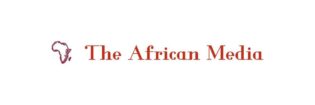Captain Ibrahim Traoré, Burkina Faso’s 36-year-old leader, has emerged as a pivotal figure in African geopolitics since his 2022 coup. His focus on controlling gold resources, reshaping governance, and challenging Western influence marks a bold shift for the Sahel nation. Traoré’s rise reflects a broader African push for sovereignty amid complex global dynamics.
Traoré assumed power in Burkina Faso’s second 2022 coup, citing insecurity and foreign exploitation. Gold, a cornerstone of the economy, became central to his vision. He accused Western firms, particularly French ones, of plundering resources while failing to stabilize the country. In 2023, his government halted exports of unprocessed gold, prioritizing local refineries to retain value. It is rumored a new gold refinery, under construction, aims to process Burkina Faso’s 153 metric tonnes of reserves domestically. However, U.S. AFRICOM’s General Michael Langley has accused Traoré of diverting gold for personal protection, a claim his supporters reject as Western propaganda.
See video:
Traoré’s governance blends populist reforms with authoritarian measures. He has launched agricultural and military initiatives to foster self-reliance, recruiting thousands to combat jihadist insurgencies. His anti-imperialist rhetoric resonates with youth, evident in mass rallies in Ouagadougou. Yet, media suspensions and detentions of critics have sparked concerns. The Africa Institute on Governance and Security (AIGS) warns that democratic erosion could undermine his legitimacy, even as supporters praise his focus on national interests.
Traoré’s rejection of Western influence is stark. He expelled French troops in 2023, ended military pacts, and criticized ECOWAS as a Western tool, forming the Alliance of Sahel States (AES) with Mali and Niger. His pivot to Russia includes military and nuclear energy deals, aligning with BRICS’ multipolar vision. South Africa’s EFF has endorsed Traoré, condemning U.S. allegations. While not a BRICS member, Burkina Faso’s policies echo the bloc’s anti-hegemonic stance, amplified by social media campaigns.
Read also: Burkina Faso’s Bold Path: Traoré’s Vision for Sovereignty and Self-Reliance
Western powers, particularly France and the U.S., view Traoré’s Russian ties and gold policies as destabilizing. Anti-Traoré protests, reportedly France-backed, have occurred in Paris, while pro-Traoré demonstrations dominate Burkina Faso and the diaspora. His balancing act—populism, security, and global partnerships—faces risks from ongoing insurgencies and potential sanctions.
Read also: Captain Ibrahim Traoré: Africa’s Youngest Leader Challenges Western Influence
Ibrahim Traoré’s rise intertwines gold, governance, and geopolitics, redefining Burkina Faso’s trajectory. His push for resource control and sovereignty inspires pan-Africanists but invites Western scrutiny and domestic challenges. His legacy will depend on navigating these tensions effectively.
